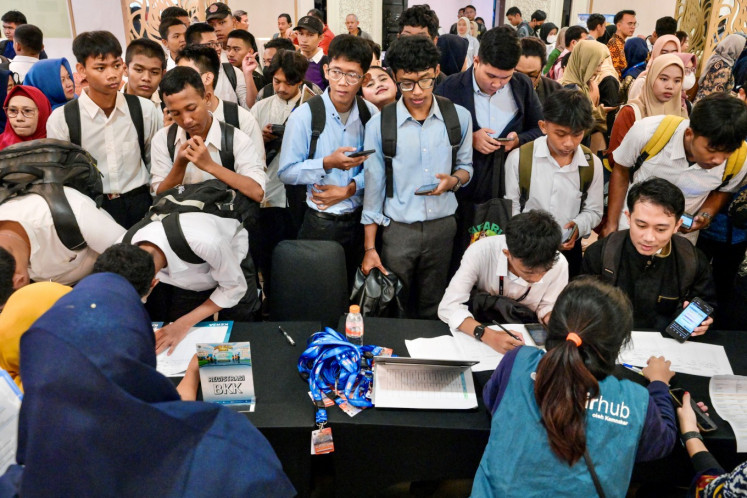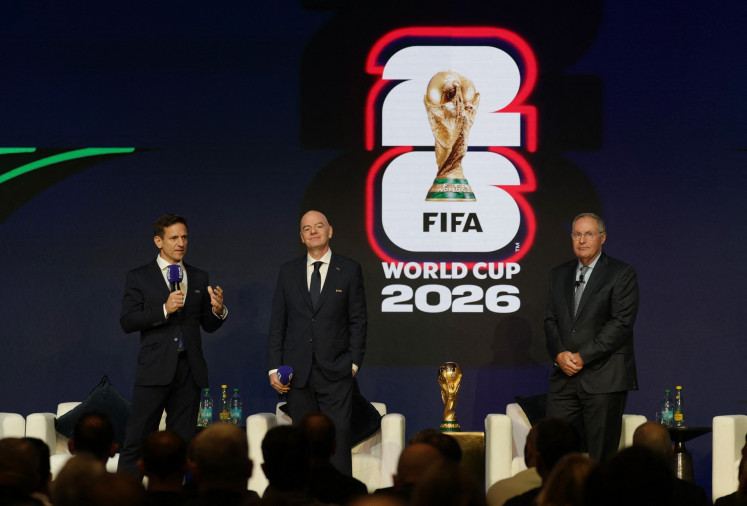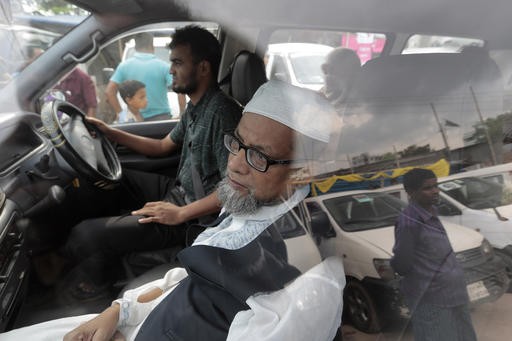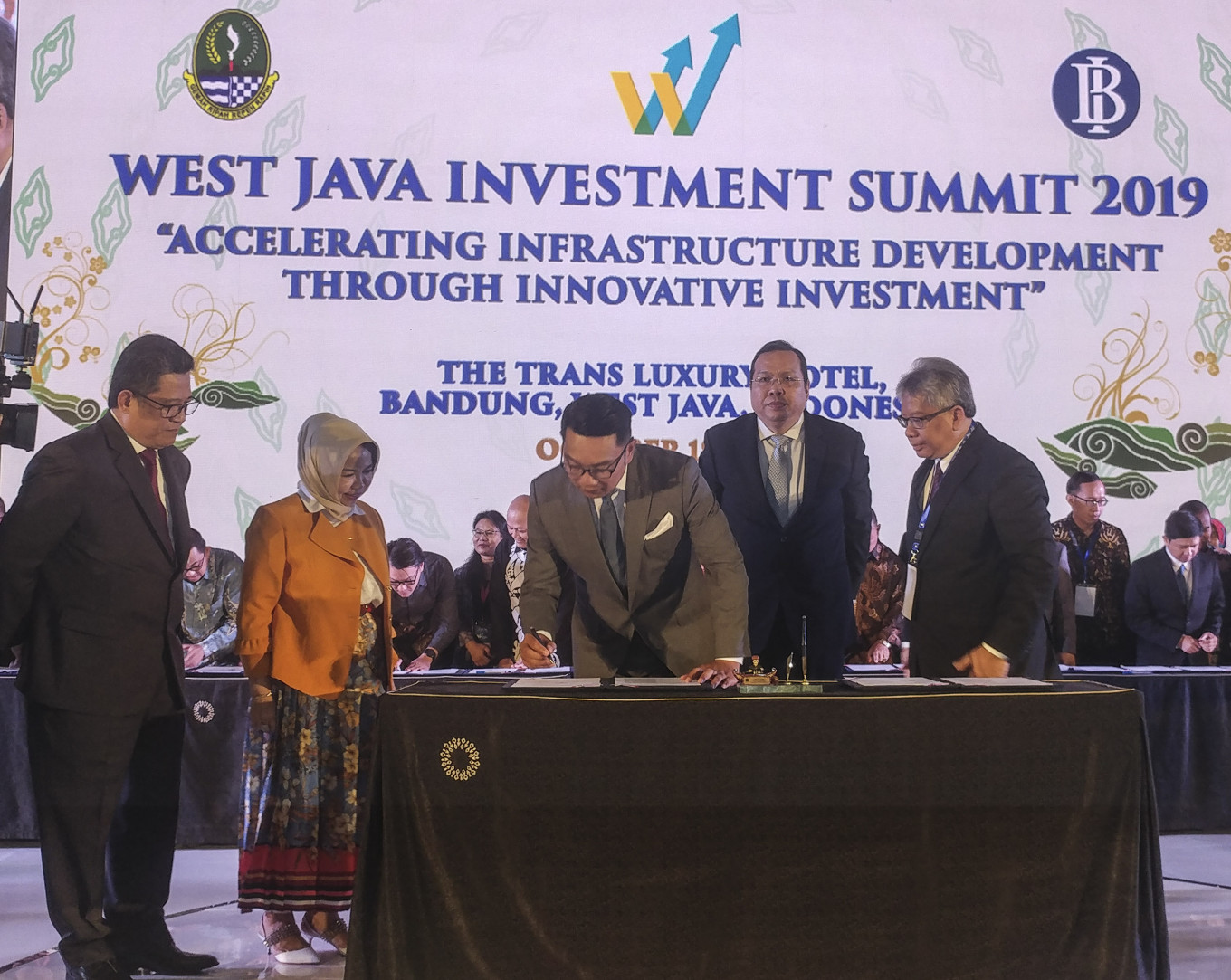Popular Reads
Top Results
Can't find what you're looking for?
View all search resultsPopular Reads
Top Results
Can't find what you're looking for?
View all search resultsJokowi’s promising choices for boosting investment
Given Jokowi’s hallmark aim to boost both foreign and direct investment, it is apparent that Jokowi handpicked one of his trustworthy allies to spearhead and coordinate the efforts to attract foreign direct investment (FDI).
Change text size
Gift Premium Articles
to Anyone
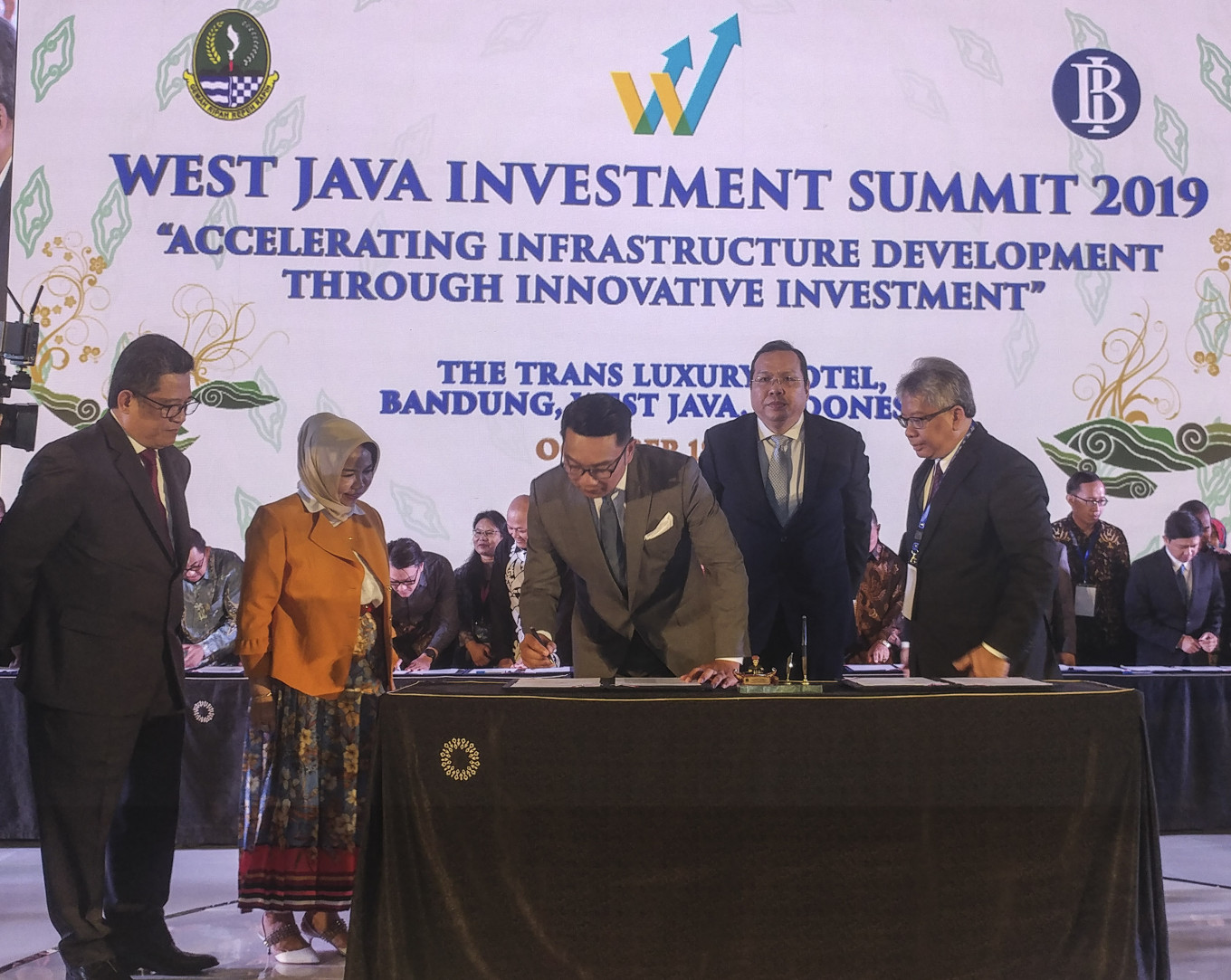 In comparison to its closest neighbors, Indonesia ranks quite low in terms of FDI inflow to gross domestic product (GDP). Vietnam is one of the highest in Southeast Asia, at nearly 6 percent of GDP. The global average is at 2.7 percent of GDP, while in Indonesia it is only 1.9 percent. (JP/Arya Dipa)
In comparison to its closest neighbors, Indonesia ranks quite low in terms of FDI inflow to gross domestic product (GDP). Vietnam is one of the highest in Southeast Asia, at nearly 6 percent of GDP. The global average is at 2.7 percent of GDP, while in Indonesia it is only 1.9 percent. (JP/Arya Dipa)
P
resident Joko “Jokowi” Widodo has just unveiled his Cabinet lineup for his second term in office. At first glance, there is a fair blend of professionals and politicians, including Jokowi’s presidential rival Prabowo Subianto serving as defense minister and Gojek founder Nadiem Makarim named as education minister. Around 45 percent of the Cabinet members are from Jokowi’s coalition, while the remainder are technocrats or professionals.
Intriguingly, the President’s close and long-term ally, Luhut Pandjaitan, who retained his role as coordinating minister for maritime affairs, was given the additional responsibility to oversee the investment. Luhut has also confirmed that he will be engaged in efforts to increase the use of B20 and B30 biodiesel blends, to reduce natural resource imports as well as to facilitate petrochemical investment.
Frankly, it may seem slightly odd to merge the investment portfolio with maritime affairs. In most other countries the organizational structure of investment affairs merits a stand-alone ministry or at least a consolidation with either foreign affairs, state planning, commerce or trade.
However, as Jokowi reiterated, investment continues to be his top priority, with a focus on deregulation and bureaucratic reform. Given Jokowi’s hallmark aim to boost both foreign and direct investment, it is apparent that Jokowi handpicked one of his trustworthy allies to spearhead and coordinate the efforts to attract foreign direct investment (FDI).
This comes at a time when the global economy is showing signs of weakness, which is exacerbated by deepening tension of the United States-China trade war.
Indonesia’s economic growth has slowed down due to lower productivity and a lack of skilled labor, a situation worsened by persistent demands for excessive increases of minimum wages. The World Bank also has lowered its projection of Indonesian growth in 2020 from 5.2 to 5 percent.
The key to sustaining our economic growth while plugging the widening current account deficit is to attract greater inflows of both portfolio capital and FDI. However, the imposing global slowdown, rising domestic labor costs and complex regulatory processes will discourage foreign investors from entering Indonesia.




